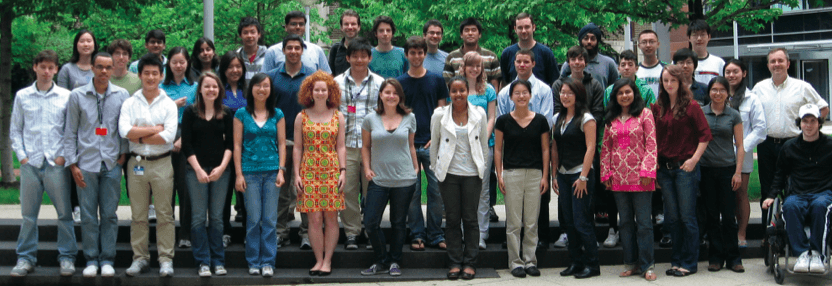During each of the past five summers, the HSCI Internship Program (HIP) has welcomed a select group of undergraduate students into its labs, offering an unparalleled, hands-on learning experience for students considering a career in stem cell science. The benches they sit at are not in a classroom and the results they produce are not described in a course companion textbook. Rather, they are conducting real research in some of stem cell biology’s leading laboratories. In addition to working under the supervision of an HSCI scientist, students participate in a weekly seminar series and course taught by HSCI’s Faculty Advisor for Education, M. William Lensch, PhD.

Throughout the summer, HIP students learn how to design and perform scientific experiments, read and critique scientific literature, create a scientific poster, and present their research findings at the HIP Symposium at the end of the summer. And students are not only exposed to a more comprehensive view of what it’s like to work in science but leave the program having developed skills that are beneficial in any career: how to think critically and how to engage in inquiry driven research.
When it first started in 2005, HSCI hosted 26 Harvard undergraduates. In subsequent years, HSCI has expanded the program’s mission to reach undergraduate students from around the world, with an emphasis on providing an opportunity for those who do not have access to stem cell research at their institution.
“HSCI is an amazing program dedicated to providing undergraduates with the experience they require to become successful scientists. My perspective on the world of science revolutionized after my internship at HSCI. I received a profound education that will always benefit me. I thank HSCI because it opened doors and changed my life, both personally and professionally,” said Kanizeh Fatema Visram, Moravian College, Pennsylvania, and 2009 HSCI Internship Program intern.
Due in part to the growing interest in stem cell research at the undergraduate level, each year competition for the 35 openings has become more intense. This year, the 18 Harvard College students and 17 non-Harvard students, including five international students, who participated in the program were selected from a pool of over 375 applications.
